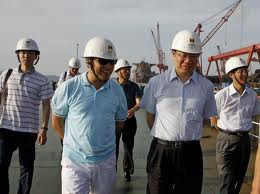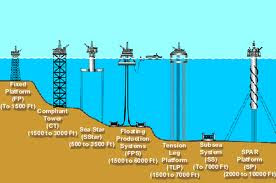
Can behavioral science prevent a repeat of the tragic blowout and oil spill that killed 11 rig workers last year in the Gulf of Mexico? The question is one of many being weighed by Canada’s National Energy Board (NEB) as part of an ongoing review of the hazards, risks and mitigation measures associated with drilling offshore in the Canadian Arctic.
“Behavioral issues are important, because behavior turns systems and procedures into reality,” says a report submitted to the federal regulator under the title Changing Minds; A Practical Guide for Behavioral Change in the Oil and Gas Industry.
The prescription is not at all frivolous. In a separate report submitted to the NEB offshore review, Norwegian risk-management specialists Det Norske Veritas highlight the role “systemic organizational deficiencies” played in a series of fatal disasters, ranging from the Texas City refinery explosion in 2005 to the collapse of the Ocean Ranger drilling platform in the icy waters offshore Newfoundland and Labrador in 1982.
The document as the largest self-propelled, semi-submersible offshore drilling unit of its era, the Ocean Ranger, officially launched in 1976, began drilling in the vicinity of the Hibernia oil field on the Grand Banks in 1980.
 It was owned by Ocean Drilling and Exploration Co. (ODECO), which operated the rig on behalf of Mobil Oil Canada Ltd. None of the 84 crew survived after the rig capsized and sank in a storm on February 15, 1982.
It was owned by Ocean Drilling and Exploration Co. (ODECO), which operated the rig on behalf of Mobil Oil Canada Ltd. None of the 84 crew survived after the rig capsized and sank in a storm on February 15, 1982.Among deficiencies cited by the Royal Commission and recalled by Det Norske was a lack of adequate marine training for key personnel. Formal training policies at Ocean Drilling and Exploration Co. followed the industry pattern of learning the job “from the bottom up.”
 No specific training was provided for “abnormal conditions,” and Mobil’s contingency plans, although outlining emergency procedures in case of oil spills, iceberg encroachment, severe weather, loss of a supply vessel and even a helicopter crash, offered no clear procedures on how to evacuate the rig.
No specific training was provided for “abnormal conditions,” and Mobil’s contingency plans, although outlining emergency procedures in case of oil spills, iceberg encroachment, severe weather, loss of a supply vessel and even a helicopter crash, offered no clear procedures on how to evacuate the rig.Policies that encouraged employees to learn by doing were “not supported by sufficient training measures which showed a lack of commitment to formally improve employees and overall company performance in the area of safety,”
But design shortcomings on the rig were compounded by human error, poor judgment and a lack of marine training, Det Norske says in its analysis. “In effect, the offshore drilling
 semi-submersible was regarded as an industrial operation in a marine setting with no marine training for its crew.”
semi-submersible was regarded as an industrial operation in a marine setting with no marine training for its crew.”Read More Details:
World Latest News: Oil and Gas News
Related News: Science News
No comments:
Post a Comment